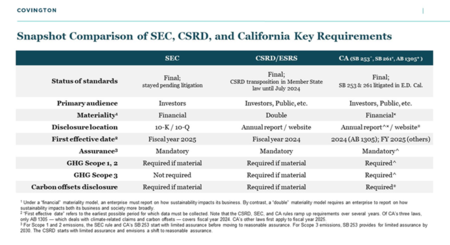Nanyang Technological University, Singapore (NTU Singapore) and Singapore Maritime Institute (SMI) have launched a report that outlines how companies can use alternative fuels to power their ships. This will help them meet the International Maritime Organisation’s (IMO) long-term greenhouse gas (GHG) emission reduction targets of at least 50 per cent, compared to the levels in 2008.
Completed last month, the 12-month study covers the technological, environmental and economic considerations in adopting alternative fuels. It evaluates the characteristics of four fuels, namely, liquefied natural gas (LNG), methanol, biodiesel, and hydrogen, and outlines ways to incorporate them into existing ship systems.
It also provides information on fuel performance, and the various technologies and infrastructure required to process and store them, such as energy converters and fuel storage platforms for liquid fuels at either room or cryogenic temperatures.
The report “Alternative Fuels for International Shipping” was launched today through an online webinar session led by Dr Prapisala Thepsithar, author of the study who shared the key findings with close to 150 maritime industry leaders and professionals.
“To date, worldwide research and development have been focusing on the technology for the alternative fuel application onboard ships”, said Dr Thepsithar, who is a Research Lead at NTU’s Maritime Energy & Sustainable Development (MESD) Centre of Excellence. “The aim of our study is to help shipping companies better understand alternative fuel technologies and how they can be incorporated into the overall value-chain.”
Funded and supported by SMI, the study maps out potential pathways and energy mix in using alternative fuels, giving realistic timelines and ways to overcome technological barriers to reduce overall GHG emissions.
The study also provides short-, medium- and long-term measures, for shipping companies to overcome challenges in incorporating alternative fuels into their value chain.
Dr Sanjay C. Kuttan, Executive Director of the Singapore Maritime Insitute, said, “As climate change is an existential challenge and the maritime industry has declared its ambition to be part of the solution and not the hindrance, it is timely for this study report to be made available to the industry. We hope that this report will help the maritime ecosystem align with the adoption of the most effective decarbonisation pathway(s) that will justify the expected large infrastructure investment.”
Professor Louis Phee, Dean of NTU’s College of Engineering, said, “This report comes at an important time amid rising energy demands and environmental concerns about carbon emissions and global warming, with international bodies taking action. It provides comprehensive information to encourage shipping companies to adopt cleaner fuels and set sail towards greener seas and bluer skies. The report also reflects NTU’s close-knit industry relations, as it is supported by the Singapore Maritime Institute, a valued partner of the university who jointly set-up MESD Centre of Excellence to nurture future maritime leaders.”
Er. Tham Wai Wah, Chief Sustainability Officer and Senior Director, Engineering and Project Management, Maritime and Port Authority of Singapore, said, “Singapore supports the IMO2050 ambition to reduce greenhouse gas emissions from international shipping by at least 50% compared to levels in 2008. We recognise that the Maritime Singapore research partners play an important role in providing insights into the viable options for our industry to meet these goals. Through this report, we hope that the shipping companies will gain better clarity of the various fuel options available and find suitable fuel diversification solutions.”
The ‘Alternative Fuels for International Shipping’ report is publicly available at NTU’s MESD website.
/Public Release. View in full here.








